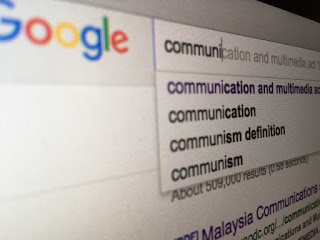Pokemon Go
Pokemon Go is the latest craze in gaming world. If you have not heard about it, you
must be under the rock. It has becoming ubiquitous in 35 countries. At the time
I write this, Malaysia is not one of them. What a surprise.
I am not a fan when it was shown on television so I cannot
understand what the craze is all about. I only bumped into this ‘fever’ by
accident when I read about it in Twitter. Curiosity made me to check it out in
the internet. I found that the interface is very interactive and appealing.
Easy to navigate. Very interactive.
What I like about the game is that it requires you to go outside the
house. So it is not meant for lazy bum. The mission is to find as many Pokemon
monsters out there at different locations. For example, you are walking down a
street in front of KLCC and suddenly your smart phone alert you that there is a
Pokemon monster at a nearby location. Your mission is to catch the monster.
Niantic Lab, the company who design the game was a part of Google
before becoming a separate entity in 2015. It come to no surprise when the
company is using Google map to determine the your location and the Pokemon
monster.
Like everything that is new, newness causes uncertainties, and
uncertainties causes anxieties.
Al Franken, a US democratic Senator from Minnesota raises concern
about the protection to the data collected by the ‘monsters’. Consumers organization in Germany had threaten
a lawsuit against Niantic if the latter does not change the privacy policy to
be in line with the German privacy and consumer protection law. Film director
Oliver Stone even go further saying that Pokemon Go is a new level of invasion
of privacy that can lead to “totalitarianism”.
What the heck is Pokemon Go got anything to do with privacy and data
protection?
Before you sign up, you need to give you basic personal
information. In order to give
personalize service, the games need to track your location and have access to
your Google account.
Basically the game operator will know your whereabouts, places that
you always hang out, the history of your Google search, and host other
information. It can be said that this game is a Trojan horse in collecting your
buying pattern and what you like. It is a data mining of your behavior. These
data indirectly indicates your preferences, marketers’ holy grail.
The company itself stated that the game could give a personalized
service. Personalized service can also means personalized advertisement based
on your preferences.
This game also raises concern on security issue especially for
children and women. The game allows for multiplayers and it is important that
you are aware who are you other playmates are.
To be fair, Niantic did state that they comply with the privacy
standard. However, they admit that they will share the “non identifying” information
with third parties for “research and analysis, demographic profiling, and other
similar purposes”. Do you know exactly
what all these mean?
Alas, by the time the ‘monsters’ come to our shores, all of us (most
of us) will be hooked up with the game. Just don’t do it while you driving or
forget to look left and right when you walk crossing the street. Privacy? Most of us have been disclosing their personal
life on Facebook anyway. So why bother and burden our minds with all this
“totalitarianism” theory. We should focus on catching as many monsters that we
can instead, to be the champion of the virtual world…sigh…

Comments
Post a Comment